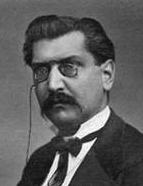

Chagas' idea of history is eclectic, between a pragmatic intentionality for forming citizen awareness in the context of the liberal state, social organicism, abstract providentialism and a liberal optimism led by the virtues of freedom and unilinear civilizational progress. In this respect, he can be considered representative of a liberal conception of history that values the actions of great men, without forgetting social constraints and a vague providence, a principle of determination and necessity that assisted that action. We can see this in the way he ended his História de Portugal: "Small nations cannot be noted in adventurous enterprises: however they may make progress in the forefront of the army of Civilization and Labour: and for this, it is essential that they have the respect of the Order, And, if in this modern world, small nations can no longer see the sun of glory shine in their horizons, they may at least always have a star, resplendent in its firmament, to serve as the North to other people, when the rest of Europe is engulfed in darkness, because this bright and serene star is called freedom" (Idem, vol. XII, p. 636).
The work hardly found a unanimous reception. In a report addressed to the Academy of Sciences, Castilho gave him high praise, considering it "a monument". Herculano was much more restrained in his letter to the editor published in the Diário Popular in 1871, revealing his positive impressions "in a work of this order the most one can ask for is that it not be lesser than the monographs that represent the result of the most rigorous studies on the subject. It seems to me that this rule was followed scrupulously" (Cartas..., vol. II, p.102). From the youngest members of Chagas' generation, the reception was far from favourable: Oliveira Martins saw it as a "compilation", insufficient as a "school of historical studies" (“Notas...”, História de Portugal, vol.II, p.328), and Eça de Queiroz derided it. However, the narrative of Portugal's path as a nation constructed by Pinheiro Chagas, and which may well be considered a canonical liberal narrative, met a broad audience through the periodical press and other works of popular and educational dissemination written by the author himself, such as História alegre de Portugal (Merry History of Portugal, 1880) or Resumo da História de Portugal (Brief History of Portugal), both of which had publishing success, the latter being adopted in the First Republic (4th ed., 1916).
